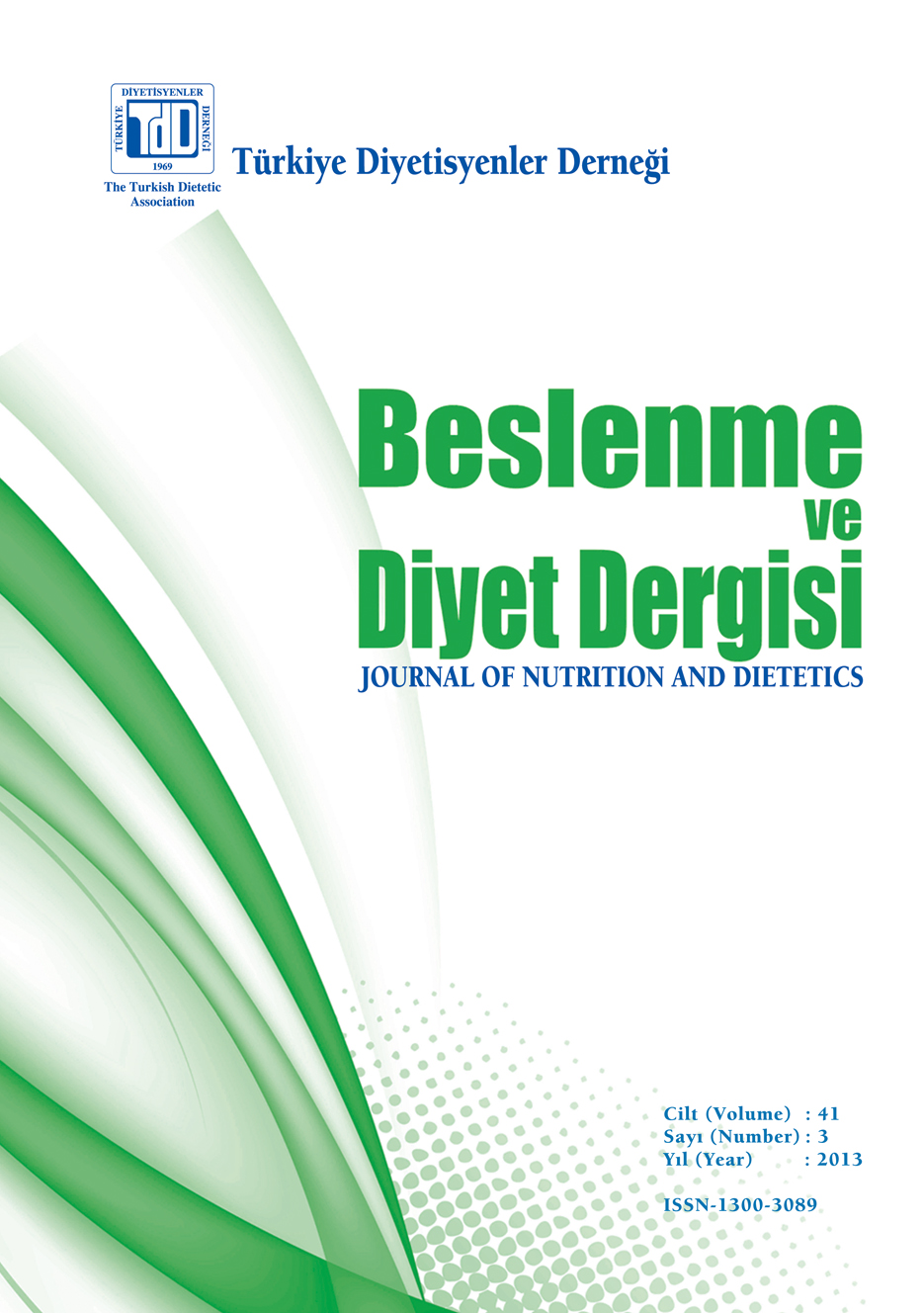The Effect of Behavioral Treatment on Nutritional Behaviors of Obese Women
Keywords:
Obesity, behavioral treatment, nutritional behaviorsAbstract
Aim: This study aimed to investigate efficacy of behavioral treatment, given to obese women. Subjects and Methods: Obese (BMI≥30 kg/m2) women admitted to İzmir Bozyaka Training and Research Hospital outpatient diet clinic were included to the study. Women without a physical disability, chronical diseases, and not pregnant, not on a strict diet or not using medications in the last six months, and who are at least primary school graduates were included in this intervention study. Sample size was calculated as 188 subjects, with 0.20 influence quantity, 80% power and 95% confidence level. The behavioral treatment was applied for a period of 3 months. As a part of this treatment the women were given nutrition education for dietary treatment, nutrition programs were arranged and they were asked to record a diary of dietary intake. The women were provided telephone consultancy service every fortnight and they were asked to come for check monthly. The independent variable of the research is behavioral treatment while the dependent variables are number of daily meals, the amount of water consumed, the consumption of fruits and vegetables, the type of bread consumed and the BMI. The research was completed with 127 persons. In the analysis, t test for dependent groups and McNemar analysis were used. Results: In the beginning of the research the mean number of meals consumed was 3.00±1.18, the amount of water intake was 6.20±3.34 glasses, the amount of fruit and vegetable consumed was 3.42±1.62 portions a day. Out of total, 24 of the subjects were consuming any of whole grain breads. Mean BMI was 36.21±5.30 kg/m2. At the end of the trial period of 3 months, the average number of meals consumed increased to 5.46±0.99, the amount intake of water increased to 8.81±2.80 glasses of water and the amount of fruits and vegetables consumed to 5.83±1.59 portions. Subjects consuming any whole grain breads were increased (n=115). At the end of the 3rd month, with regard to the initial conditions, a meaningful increase in the behaviors for which behavioral changes had been expected and a significant decrease in BMI were observed. Conclusion: An improvement was realized on the nutritional behaviors of persons by means of behavioral treatment. To ensure a continuous positive behavior changes related to eating and physical activity and enable as a lifestyle change should be the priority of obesity treatment.

